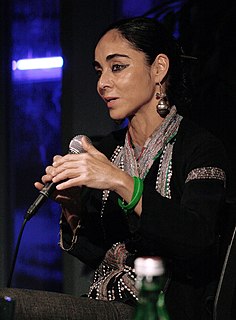A Quote by Graham Greene
Reality in our century is not something to be faced.
Related Quotes
So this is reality, this forgiveness, this reconciliation, is true for everybody. Paul insisted that when Jesus died on the cross, he was reconciling "all things, in heaven and on earth, to God." All things, everywhere. ...This reality then isn't something we make come true about ourselves by doing something. It is already true. Our choice is to live in this new reality or cling to a reality of our own making.
You're faced with creation, you're faced with something very mysterious and very mystical, whether it's looking at the ocean or being alone in a forest, or sometimes looking at the stars. There's really something very powerful about nature that's endlessly mysterious and a reminder of our humanity, our mortality, of more existential things that we usually manage to not get involved with very often because of daily activity.
We're all looking from the point of view of our own reality tunnels. And when we begin to realize that we're all looking from the point of view of our own reality tunnels, we find that it is much easier to understand where other people are coming from. All the ones who don't have the same reality tunnel as us do not seem ignorant, or deliberately perverse, or lying, or hypnotized by some mad ideology, they just have a different reality tunnel. And every reality tunnel might tell us something interesting about our world, if we're willing to listen.
We sabotage our creative possibilities because the world revealed by our imagination may not fit well with the life we have taken so much trouble to construct over the years. Faced with the pain of that distance, the distance between desire and reality, we turn just for a moment and quickly busy ourselves.
Given that the nineteenth century was the century of Socialism, of Liberalism, and of Democracy, it does not necessarily follow that the twentieth century must also be a century of Socialism, Liberalism and Democracy: political doctrines pass, but humanity remains, and it may rather be expected that this will be a century of authority ... a century of Fascism. For if the nineteenth century was a century of individualism it may be expected that this will be the century of collectivism and hence the century of the State.







































